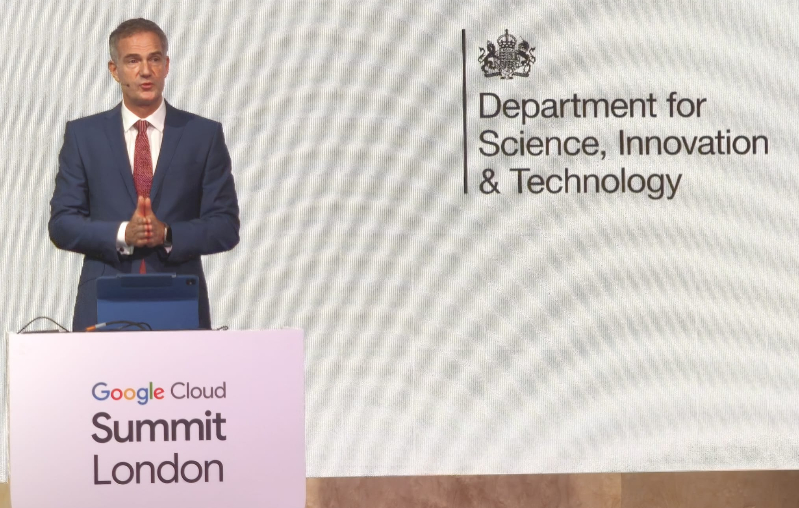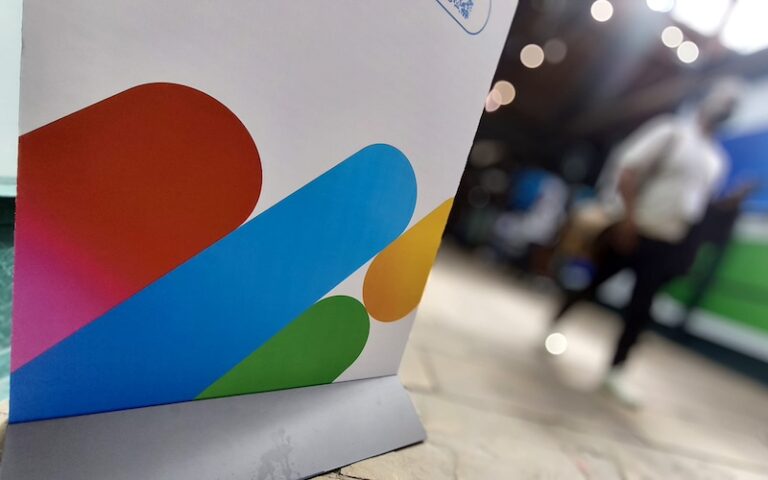Google Cloud assembled developers, cloud engineering practitioners, customers, partners and the wider virtualisation cognoscenti in London’s Tobacco Dock this week for the UK leg of its technical engagement summit series. With a newsreel packed with customer success stories, Google Cloud platform toolset updates and (naturally) a high degree of agentic artificial intelligence on offer from Google Gemini to Google Vertex to Google Firebase Studio and beyond, the sun (for once) shone on London.
Starting the day one keynote (after a full brass band rendition of Curtis Mayfield’s Move On Up at volume 11, naturally), Google Cloud VP for UK, Ireland and sub-Saharan Africa, Maureen Costello started the day.
Talking about how the company is working with organisations and governments to use Google Gemini and Vertex AI to now roll out new services across all industries, Costello said that in 2024, Google Cloud released more than 3,000 new services across the platform itself (including those on Google Workspace), so that today, more than 7 million developers are now using Vertiex and AI Studio.
Seriously sustainable
The company is also talking about how Google Workspace is working to develop important functions for business users across areas such as governance and also (on a different level perhaps) sustainability.
“Working with our partner ecosystem to transform work focused on net-zero emissions targets, I’m inspired by seeing companies in all industries work more sustainably, more efficiently and more intelligently,” said Costello. Detailing the degree to which Google Cloud also focuses very directly on startups, she explained how Google for Startups (as a formalised company division) is diversifying the way its technologies are developing.
“We’re investing in a world-class, AI-ready workforce. We are announcing a landmark proposal to provide free cloud and AI skills training for up to 100,000 public sector workers. This initiative is designed to accelerate the digital transformation of public services and empower the workforce with the talent to lead in the AI era,” said Costello. “Agentic AI is emerging as a major force in enterprise technology, representing a foundational shift in how work gets done. We’re helping [global] businesses go beyond experimentation and embrace a new era of intelligent agents. With advanced models like Gemini on our Vertex AI platform, we’re giving businesses the toolkits to drive real results and realise value faster.”
An entire stack of agents
Hayete Gallot, Google Cloud VP of customer experience, took over the keynote to talk about how the company wants to optimise the entire IT stack inside working organisations today. Today that’s all about tools which enable firms to build and manage agentic AI services. The core layer includes Google Cloud’s AI Hypercomputer (with 7th generation TPU vLLM for TPUs), Gemini on Google Distributed Cloud and – thirdly – Google Cloud WAN to connect what are currently billions of users.
“We expect that you will get agents from Google Cloud, but also from other providers, so we want to enable users to be able to orchestrate agents and manage what happens inside real-world operational workflows,” said Gallot.
Vertex AI Agent Builder provides a toolkit to enable developers to build multi-agent experiences and it has an agent engine that looks after login and monitoring functions to ensure agents work as intended once deployed. When developers think about building agents, the company wants to provide purpose-built agents that it has identified for common use functions that exist across all industries (agents could be commonly defined in “job roles” that fall into areas like customer service, finance, sales, admins and so much more) and make sure that all agents can work together effectively.
Google Agentspace works as a platform for developers to be able to “consume agents” in a standardised and coherent way. This service puts the latest Google foundation models, agents and actionable enterprise knowledge in the hands of employees. Employees (and indeed agents themselves) can find information from across their organisation, synthesise and understand it with Gemini’s multimodal intelligence… and act on it with other AI agents.
Addressing the ever-present subject of data sovereignty, Gallot also detailed Google Cloud’s work in Google Cloud Data Boundary, Google Cloud Dedicated and Google Cloud Air-Gapped, the last (open source) service being suited (unsuprisingly) to highly-regulated industry deployments such as in defence, healthcare and for some government services. Google Unified Security was also covered as part of the keynote. Emma Smith, global CISO at Vodafone, joined the keynote to underline how her organisation has used an adaptive approach to SecOps on Google Cloud and securely deliver the services that the company pledges to offer its users.
Coherent customer collective
Google Cloud used this event to detail work stories with global customers. River health and water quality company Additive Catchments is enhancing the deployment of intelligent catchment monitoring infrastructure with Google Cloud technologies and integration specialists Capgemini to enhance environmental resilience.
Formula E and Google Cloud are launching a new initiative to make motorsport more accessible for blind and visually impaired fans through an innovative, AI-powered, audio race report. London’s Imperial War Museum’s ‘archive project’ sees it collaborating with Google Cloud and Capgemini in the digitisation and AI-powered transcription of over 20,000 hours and 45,000 recordings from its historic “oral history” collection.
Handmade cruelty-free cosmetics company Lush is launching ‘Lush Lens’, an AI-powered image recognition tool at its checkouts. The company is using Google Cloud’s Vertex AI platform and Cloud Storage to enable the identification of packaging-free products.
Building trade supplies specialist Toolstation is using Google Cloud’s Vertex AI Search for commerce to improve how customers find products on its site, giving them accurate search results, driving increases in click-through rates and search-based revenue. This was a London-based event after all, so there was an appearance from the UK Government is partnering with Google Cloud to help rid taxpayers of ‘ball and chain’ legacy tech and provide free cloud and AI skills training to 100,000 UK public sector workers.
Something for every user
To end on a user usability note, the new Gmail ‘Manage Subscriptions’ feature was detailed at this week’s show. The technology helps users get rid of unwanted emails, giving them more control over the messages they receive. Google provided us with a blog post for those who want more info on this update.
Overall, given the huge number of vendors pumping out marketing communications messages telling us that they have “just launched a new agentic AI service” today, it’s almost comforting to hear developments in this space showcased by a company as expansive as Google Cloud. Can we take the work carried out at this level as something of a barometer against which we can just developments across the rest of the industry? Who knows, let’s Google it.

